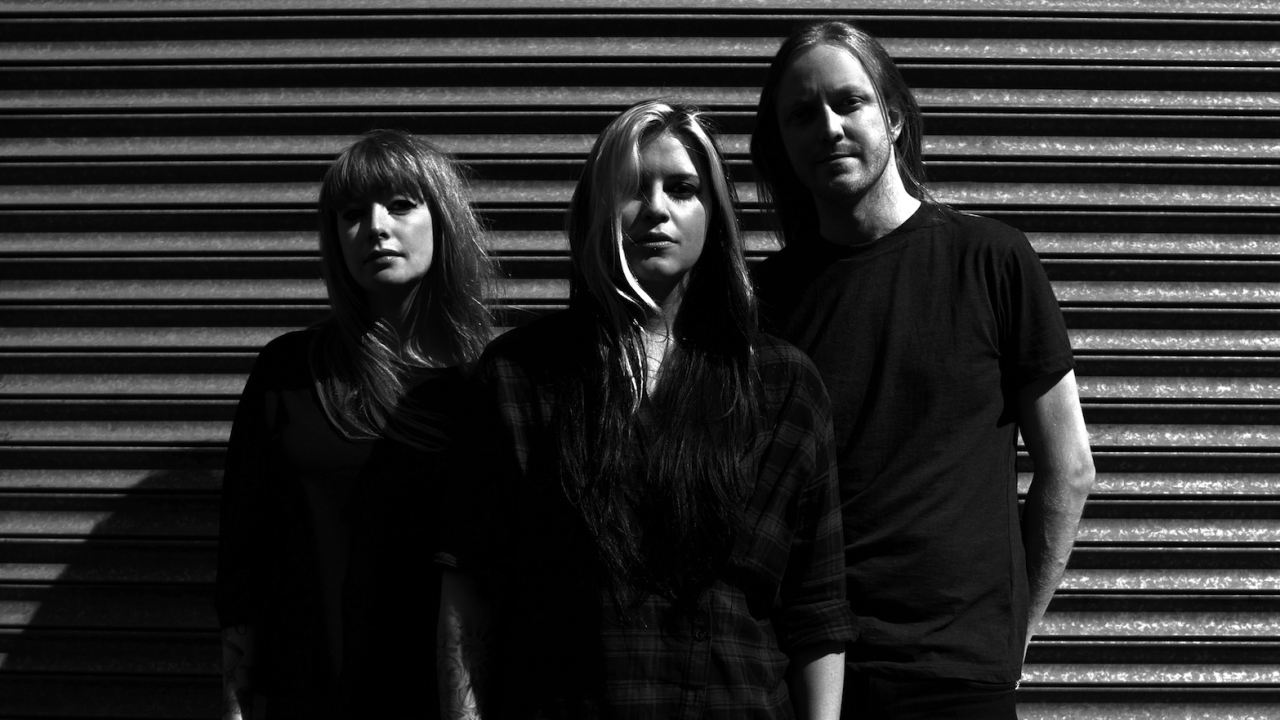Conjuring up a maelstrom of dark, brooding noise, London three-piece Masakichi share the surname of a 19th century Japanese sculptor who, believing he was dying from tuberculosis, made a life-size – and incredibly lifelike – wooden sculpture of himself to give to the woman he loved to remember him by. So good was his creation that, legend has it, when he unveiled the finished sculpture in 1885 and stood next to it, people couldn’t actually tell which body was real. He even used his own hair, teeth and nails – seriously, look it up. It’s a crazy story.
Anyway, Masakichi the band – vocalist Hannah Cartwright, guitarist Reuben Gotto and bassist/vocalist Hattie Williams – are actually named after a character in Haruki Murakami’s After The Quake, but the attention to detail in their songs is almost as profound as that of the sculptor, presumably because Gotto, who travels the world with bands such as Foals and The Maccabees as their tech, writes the bulk of the music in his tour downtime. Of which there’s a lot.
“I’ve been taking any minute I can to sit and write, in hotel rooms, backstage, wherever,” says Gotto, who used to play guitar in now-defunct Brighton metalcore outfit Johnny Truant. “I’ve been sat doing that as much as I can to make use of my time while I’m on tour with other bands. And to be honest, I do more songwriting when I’m on tour than when I’m at home, because when you’re on tour you have this drive to do stuff with your time. If you’re stuck in a hotel room in Pawtucket, or somewhere you’ve never heard of, and the only things nearby are a steak restaurant and I’m a vegetarian, what am I going to do? I’m going to sit and drink red wine and write music, because it’s better to spend eight hours writing music than watching crap action movies that you’d never watch otherwise.”
The most recent result of all that creative downtime is mini-album Hummingbird, whose seven songs (well, six and one alt-J remix) combine post-rock with ethereal vocals to create a sound that’s both unsettling and beautiful. Full of a graceful but forceful, haunting and haunted, power, it’s a record made for slowly breaking hearts that’s drenched, both musically and lyrically, in sorrow.
“I’ve had a lot of stressful times over the last few years,” says Gotto, “with being away a lot when quite serious stuff’s been happening with my family and friends, and I miss out on a lot of escapes, that I then get from writing music on tour. And also, with this surreal life of being on tour, you can get so down because there’s no-one there to mediate how you feel – you’re kind of taken along by what’s happening around you, and that can be pretty intense in both directions. You can have the best time ever or you can really struggle, especially when you’re the wrong side of the globe when something happens at home.”
Initially intended as a solo instrumental project for Gotto, Masakichi evolved when a mutual friend put him in touch with Cartwright, and then Williams, who Gotto has known for years from brighton, and her previous band Telegraphs, joined the fold. Suddenly, they were a real band, and one who now have a real record out. And while it might – at the moment – be a world away from the kind of venues that Foals play, but that, for Gotto, is part of the joy of it.
Hummingbird is out now through Fierce Panda. For more information, check out their official Facebook page.
“I’ll come off tours with trucks and trucks of equipment,” says Gotto, “and then we’re trying to get a taxi to gig, but in my head I still want it to be the same kind of show. It can be quite a stretch, but it’s also really fun going back to the grassroots of it all – like you turn up to the venue and nothing works and no-one knows what’s going on but you somehow fight through it and come out with a good show at the end of it. It’s more of a success and more something to celebrate than turning up as a part of a big money machine and it going predictably well.”
